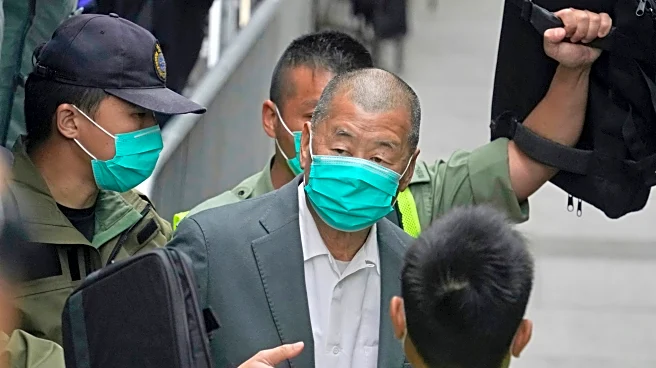What's Happening?
US authorities have indicted four individuals—Hon Ning Ho, Brian Curtis Raymond, Cham Li, and Jing Chen—for allegedly conspiring to smuggle Nvidia AI chips and supercomputers to China. The indictment, unsealed in a federal court, accuses the group of
using a sham real estate company in Florida to purchase Nvidia chips and then resell them to Chinese companies. The smuggling operation reportedly involved shipping the hardware through Thailand and Malaysia with doctored customs paperwork. The defendants allegedly exported approximately 400 Nvidia A100 GPUs and attempted to smuggle 50 Nvidia H200 chips, as well as 10 Hewlett Packard Enterprise supercomputers containing Nvidia H100 chips. The scheme has reportedly generated nearly $3.9 million from two undisclosed Chinese companies. This operation is part of a broader US effort to prevent the export of advanced AI technology to China, amid concerns these technologies could be used for military and surveillance purposes.
Why It's Important?
The indictment highlights ongoing tensions between the US and China regarding technology exports, particularly in the field of artificial intelligence. The US government is increasingly vigilant about preventing the transfer of advanced technologies that could enhance China's military and surveillance capabilities. This case underscores the strategic importance of AI technology and the lengths to which individuals and entities might go to circumvent export controls. The smuggling of Nvidia chips, which are crucial for AI development, could have significant implications for national security and international relations. The US aims to maintain its technological edge and prevent potential adversaries from gaining access to critical technologies.
What's Next?
The legal proceedings against the indicted individuals will likely continue, with potential ramifications for US-China relations. The US government may intensify its scrutiny of technology exports and strengthen enforcement measures to prevent similar incidents. Companies involved in the production and distribution of AI technology may face increased regulatory oversight. Additionally, this case could prompt discussions on international cooperation to address technology smuggling and ensure compliance with export regulations. Stakeholders, including policymakers and industry leaders, may advocate for more stringent controls and collaboration to safeguard sensitive technologies.

















